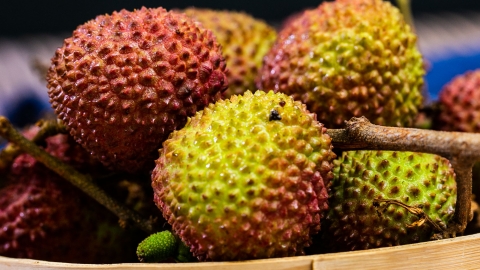Can patients with urinary stones eat lychee?
Whether patients with urinary stones can eat lychee depends on the composition of the stones and their physical condition. Patients with non-calcium oxalate stones and normal kidney function may consume lychee in moderation, while those with calcium oxalate stones or impaired kidney function should avoid it. If abnormalities occur, prompt medical attention is recommended. Detailed analysis is as follows:

If patients with urinary stones are diagnosed with stones that are not composed of calcium oxalate and have normal kidney function, they may consume lychee in moderation. Lychee is rich in vitamins and water; vitamins help enhance the body's immunity, while water promotes urination. Eating 3-5 lychees at a time can provide nutrition, help dilute urine, and reduce the risk of stone recurrence. However, consumption should be controlled to avoid excessive sugar intake.
When the urinary stones are composed of calcium oxalate or the patient has impaired kidney function, lychee should not be consumed. Lychee contains a certain amount of oxalic acid, which can increase the oxalate content in urine, promoting the formation or enlargement of calcium oxalate stones. When kidney function is abnormal, the body's metabolic capacity is weakened, and excessive sugar and water intake from lychee may increase the burden on the kidneys. Strict dietary restrictions are required in such cases.
Before consuming lychee, patients with urinary stones should identify the stone composition and assess kidney function, following dietary advice from their doctor. Even if lychee can be consumed, the quantity must be strictly controlled.




